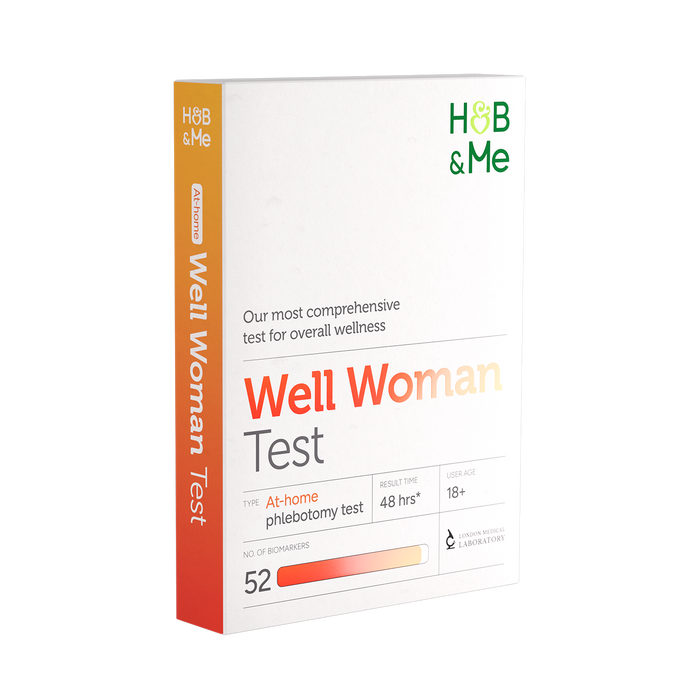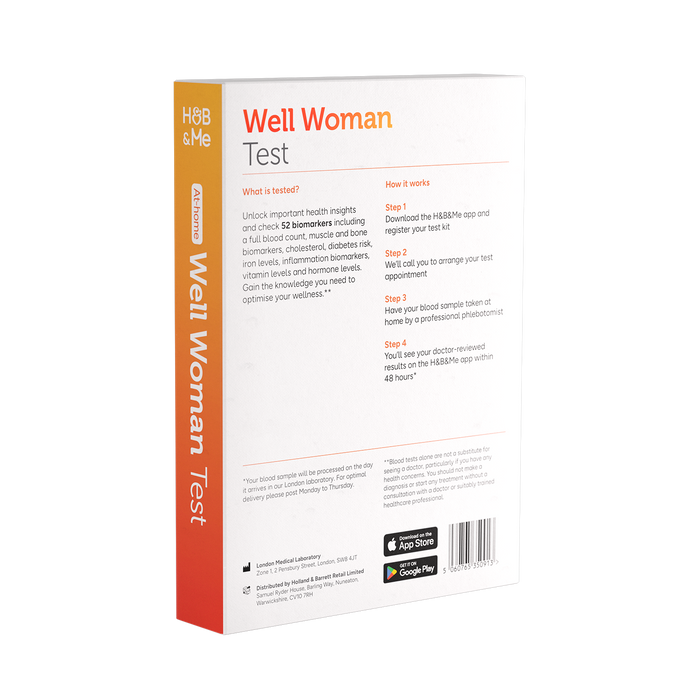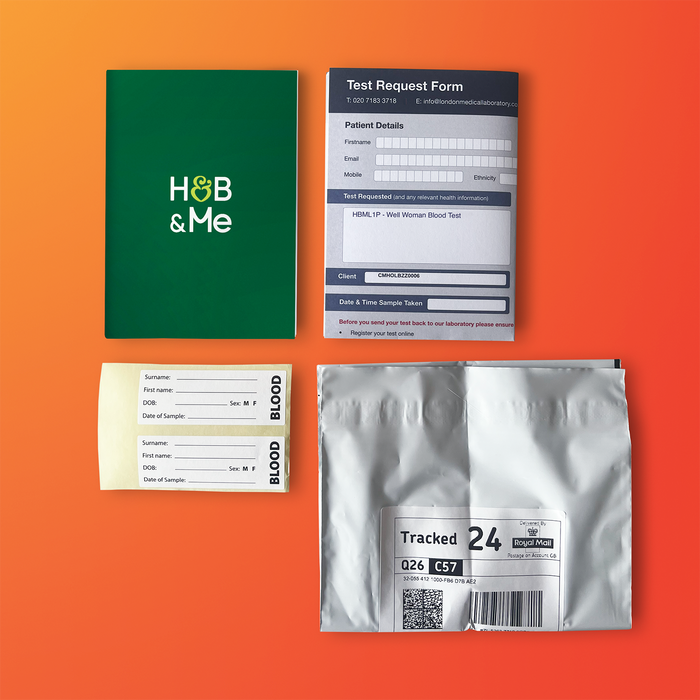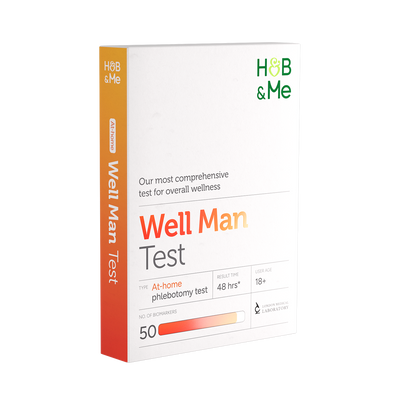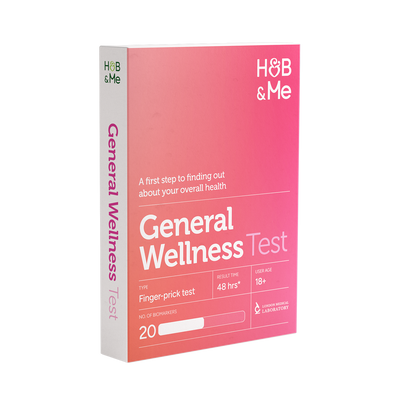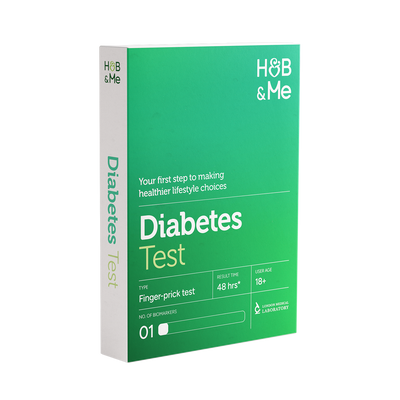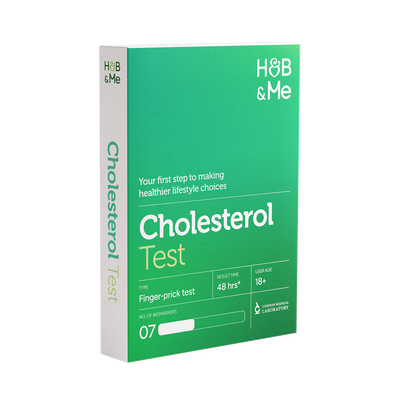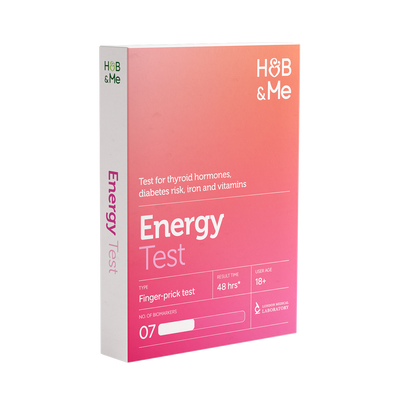Lab delays are causing a 3-5 day delay in getting your full results. Please contact our help centre if you require assistance
Well Woman Blood Test
Optimise your wellbeing! This comprehensive Well Woman blood test goes beyond basic nutrients to reveal insights into your hormones, vitamins, thyroid health and more to support energy, mood and overall wellness. Test 50+ essential health markers and get doctor-reviewed results delivered to your phone in just 48 hours. Your blood will be taken by a trained phlebotomist at home for ultimate convenience.
-
Regular Price
-
£218.00
-
Sale Price
-
£218.00
-
Regular Price
-
- Regular Price
- £218.00
- Sale Price
- £218.00
- Regular Price
Free delivery Delivered in 1-3 days
Read our data privacy notice here
So helpful!
'It was so helpful to receive so much information on different areas of my health, and to see exactly where my results placed in relation to normal ranges. The Well Woman test gave me a great guideline on the state of my health.'
Cathy, Manchester
What can you learn from this test?
Get insights into your risk for developing health conditions and deficiencies, including:
How it works
Register your test
Register your test kit on the H&B&Me app.
Book your test
You’ll receive a phone call to arrange your test time.
Complete your test
Have your test done by a phlebotomist at home.
Get your results
View your results on the app within 48 hours.


Product advice
Book a free video call with our expert advisors for product tips tailored to you.
Full doctors report
Get a downloadable report from a registered doctor explaining your results.
Results & App benefits
Get doctor reviewed results without having to wait for a GP appointment.

Your privacy. Guaranteed.
Keep track of your health anywhere with the H&B&Me app, now available on iOS and Android.
Safe & secure data
Your data is secure. We use the latest encryption technologies and we’re committed to our data protection responsibilities.
Protected privacy
Your data is never sold on, rented out, or shared with third parties for financial advantage.
Accurate insights
We work with Care Quality Commission-accredited labs and our blood test kits are all CE-marked.
Your data is secure. We use the latest encryption technologies and we’re committed to our data protection responsibilities.
Your data is never sold on, rented out, or shared with third parties for financial advantage.
We work with Care Quality Commission-accredited labs and our blood test kits are all CE-marked.
Meet our experts

Dr Leah Gorodi
Medical Lead and GP with a special interest in lifestyle medicine and health prevention

Dr Taran Toor
Chief Medical Officer, clinical entrepreneur and GP with an interest in digital health


Get more from your results with the H&B&Me app
Keep track of your health anywhere with the H&B&Me app, now available on iOS and Android.
You might also like
Any questions?
Click the link below to access our FAQ’s page for advice and answers to some of your questions
Intended use
These blood tests are designed for adults aged 18 and over, and are unsuitable for children. Please note that these blood tests cannot treat or diagnose medical conditions. As Holland & Barrett don’t collect any data about your medical history, you must interpret the significance of your results with caution. Be aware that medical conditions, medications, or other aspects of your health can affect your test results. These tests do not replace seeking medical advice and assessment, and if you have an abnormal test result, you should always seek appropriate advice from a trained health professional.
